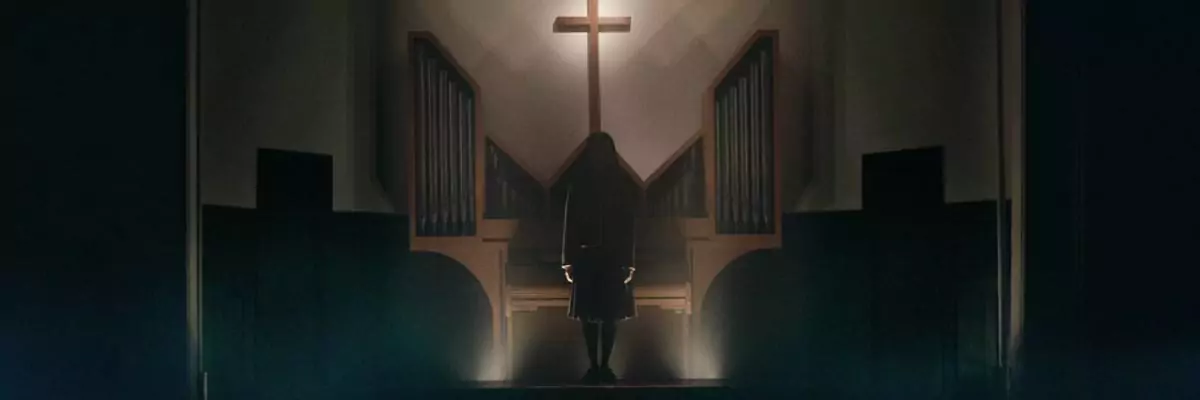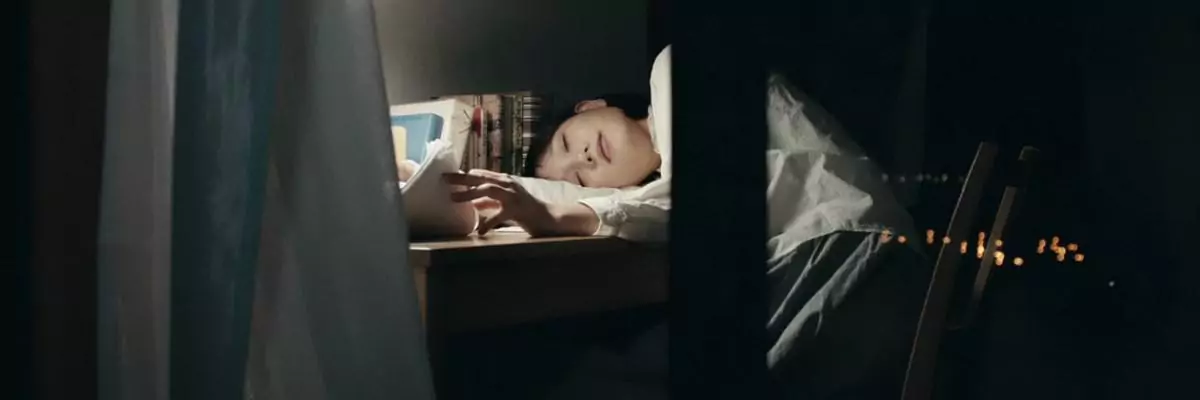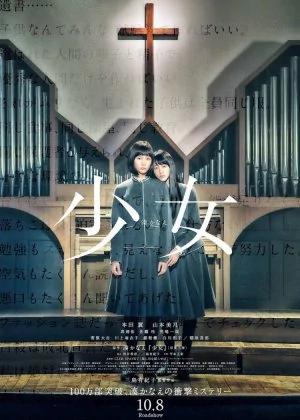Night's Tightrope
I knew next to nothing about Yukiko Mishima's Shojo [Night's Tightrope] when I started the film, apart from the fact that when Japan does coming of age with schoolgirls, things could end up pretty grim. And that's exactly what Night's Tightrope delivers. A dark, mysterious and sullen mix of drama and mystery that is both beautiful and disturbing at the same time. While Mishima has been active for some time already, this is the kind of calling card that could put her on the map once and for all.

The film is an adaptation of Kanae Minato's same-titled novel. Minato is probably best known for producing the source material for Kokuhaku, a film that went on to introduce Tatsuya Nakashima to a broader global audience. In theory Night's Tightrope could do the same for Mishima, though I'm afraid her adaptation is still a little too Japanese for international audiences. Those who have a soft spot for Japanese cinema though should feel right at home here.
Night's Tightrope is a drama presented as a mystery. It has all the typical elements of an edgy Japanese high school drama, with bullying teens, sexual harassment and suicidal characters, but the presentation is a lot stranger and more mysterious than you'd suspect based on the core material. Some people might feel a little cheated, as the plot doesn't immediately support the mystery, but it makes for a very nice atmosphere that keeps you on your toes from the very start of the film, while the drama unfolds slowly in the background.
The film follows two best friends, Yuki and Atsuko, who are slowly starting to drift apart. Both are dealing with profound issues in their own lives and their friendship inevitably suffers. There's a boy involved of course, but ultimately he doesn't represent the worst of their troubles. He does however turn out to be the proverbial drop in the bucket. Once inseparable, Yuki and Atsuko accept different vacation jobs and find themselves further apart than ever. Little do they know their lives are about to converge once again.

Stylistically Night's Tightrope is impeccable. On a visual level, it blends some trademark elements of Japanese drama (bike rides shot from the side, long tracking shots of people running) with darker influences coming from the mystery side of things. The camera work is beautiful, the color toning impressive and the framing detailed. There's always something interesting happening in the shots and there are quite a few images that linger. It's not quite up there with Nakashima's films, but it does come pretty close.
The soundtrack is a tad more conventional, though again it offers a pleasant mix of more traditional drama music with moodier, more mysterious tracks. That in itself is quite a feat. It's not a very demanding score and, save for a few moments, it never really grabs you. Then again, it's always appropriate and it does its fair share to build up the atmosphere. While there is definitely room for improvement, the score works and does nothing to raise any serious complaints.
There aren't too many familiar faces around, unless you happen to be quite versed in the world of Japanese TV series. Most of the actors have been around for a while, but not so much in feature films. They all do a very commendable job though, with Tsubasa Honda (Yuki) claiming the most attention. She has a certain coldness that works wonders for her character, at the same time making sure Yuki never transforms into a total freak. Mizuki Yamamoto is notable as the somewhat more timid Atsuko, the secondary cast is also up to par.

Even though the ending does lean a bit more to the dramatic side, the mystery never truly leaves the film. The post-climax scene even adds an extra dosage of unease. It's a pretty peculiar feeling that I can't really remember experiencing before. When all is said and done, Night's Tightrope is very much a drama film, but the overall atmosphere and the lingering impression is that of a darker mystery. Mishima deserves a lot of credit for keeping these two stretches balanced, though it's a bit difficult to predict how people unfamiliar with Japanese cinema might react to it.
I do think Night's Tightrope is a film that could please a broader audience, but it's pretty obvious that it's not going to get that chance. While the link with Kokuhaku might pull in some extra people, ultimately Night's Tightrope is a bit too Japanese for distributors to take the risk. It is a very accomplished film though, with impeccable styling, solid acting and a unique balance of drama and mystery. For those who feel a little adventurous, it's an easy recommend. I'm not sure if I should look up Mishima's earlier films as they do look pretty different, but I am keeping an eye on her next move.
